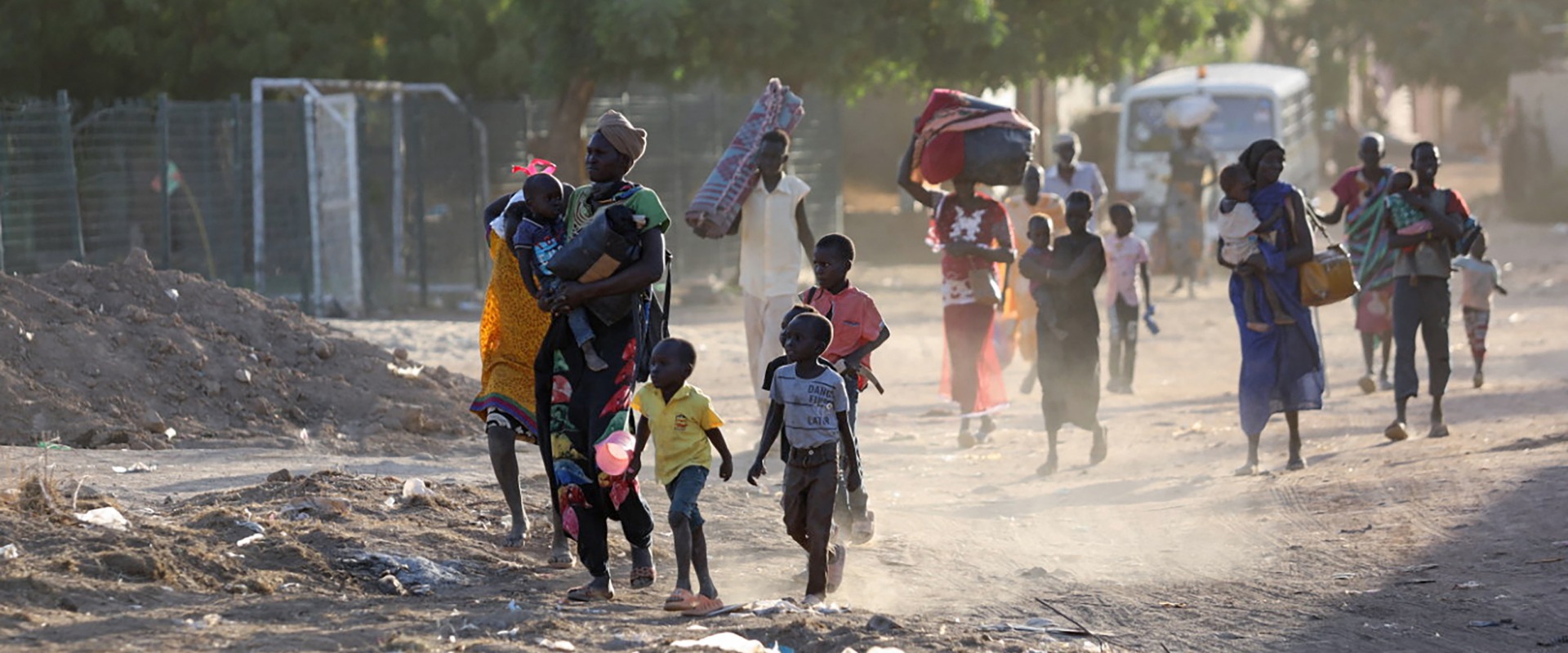
GIVE THIS RAMADAN

The violence in Sudan threatens to deepen the humanitarian crisis in a country that was already struggling with hunger, poverty, and inequality. Prior to the escalation in conflict, 15.8 million people—or 30% of the country’s population—were in need of humanitarian assistance. More than 11 million people were acutely food insecure, or unable to access sufficient nutritious food.
Since fighting broke out on April 15, food prices have doubled and the movement of people and supplies is increasingly being restricted, making it even more difficult for people to access food and water. The World Food Program warns that fighting in Sudan could plunge millions more people into hunger.
Action Against Hunger has been working in Sudan since 2017 to deliver urgent nutrition and food security assistance and respond to emergencies. In southeastern Sudan, “the situation here is calm, but there is fear within people due to what is going on in Khartoum. People do not know what will happen next,” reported El Fateh Edis Edris Eisa, Action Against Hunger’s Head of Base in Blue Nile State, referencing the violence in Sudan’s capital city.
More than 400 people have been killed and at least 3,700 have been injured. Many are fleeing violence on foot. According to the United Nations, nearly 4,000 people have been registered moving from Sudan to South Sudan and nearly 20,000 people migrating to Chad, which is already home to more than 400,000 Sudanese refugees. The UN’s Refugee Agency estimates that the total number or refugees fleeing Sudan for South Sudan or Chad could increase to 270,000 people—and those figures do not account for additional refugees fleeing to other countries.
There are also those who are fleeing violence, but staying within Sudan. According to Action Against Hunger’s Head of Base in the White Nile State: “Thousands of people are arriving from Khartoum. Some are taking refuge in schools and mosques.”
Sudanese people are helping those who are fleeing the conflict’s hotspots. “On our way from Khartoum to Gedared, we saw many villagers offering water and food to people leaving Khartoum. The people are amazing. I hope we can get back on our feet so we can continue to serve and work together,” said one international humanitarian worker evacuating from Sudan, whose identity is not being shared due to security reasons.
In the current crisis, humanitarian workers and members of the international community are being targeted. To date, five humanitarian workers have been killed, according to the United Nations. Humanitarian activities have been disrupted and there are many reports of looting of humanitarian supplies and other assets, which makes it even harder for organizations to provide food, water, and other assistance to affected communities.
Evacuations of international workers and their families are ongoing. After he was evacuated, Reza Mohammadi, Action Against Hunger’s Financial Coordinator in Sudan, said, “My family and I feel safe now, but we cannot stop thinking about our national colleagues and their families.”
“Our thoughts are for all our national colleagues who are suffering from this unjustified war,” said Rafiullah Tariq, Head of Action Against Hunger’s Monitoring, Evaluation, Analysis, and Learning Department in Sudan.
Action Against Hunger is deeply concerned about this crisis. We fear for the security and wellbeing of our national staff who remain in the country, and we know that these staff will be instrumental to resuming our operations as soon as it is safe to do so.
“We will continue working, with much more strength, for the Sudanese people to move forward,” said Paloma Martin, Action Against Hunger Coordinator for Africa. “An African proverb says that when two elephants fight, it is the grass that suffers. What the proverb does not say is that the grass grows back, and in some places, so strongly that the ground cannot be seen.”
An estimated 50,000 acutely malnourished children in Sudan have had their treatments disrupted due to the conflict, according to the World Health Organization. Most of the world’s population, as well as 75% of all chronically malnourished children under the age of five, live in countries affected by armed conflict and violence. Conflict remains the primary driver of global food insecurity.
This is coupled with dry spells, floods, and disease outbreaks. Prolonged droughts, erratic rains, and subsequent crop failure caused the food security situation to deteriorate in recent years. In 2021, when Sudan’s armed forces launched a military coup, food insecurity rates were as high as 65% in West Darfur, 59% in Central Darfur, and 56% in North Darfur. Malnutrition was increasing across Sudan at a concerning rate, especially among children, with approximately 3 million under five suffering from malnutrition annually, according to UNICEF.
In December 2022, Sudan’s military and civilian leaders signed a preliminary deal to end the military rule that has governed the country since October 2021. A final deal was set to be signed in April, on the fourth anniversary of the overthrow of Omar al-Bashir, the long-ruling leader of Sudan. Both the Sudanese Armed Forces and the Rapid Support Forces were required to cede power, which caused tensions to increase. The conflict erupted on April 15 after negotiations over the transition from a military government to a civilian government stalled.
On April 25, a 72-hour ceasefire was agreed upon between the warring parties after mediation from the United States and Saudi Arabia. However, Action Against Hunger staff in Khartoum say that the “ceasefire was respected during the first day, but it is not being respected anymore. There is heavy shooting and air bombardments.”
Action Against Hunger urges parties to the conflict to take the following measures:
Join our community of supporters passionate about ending world hunger.